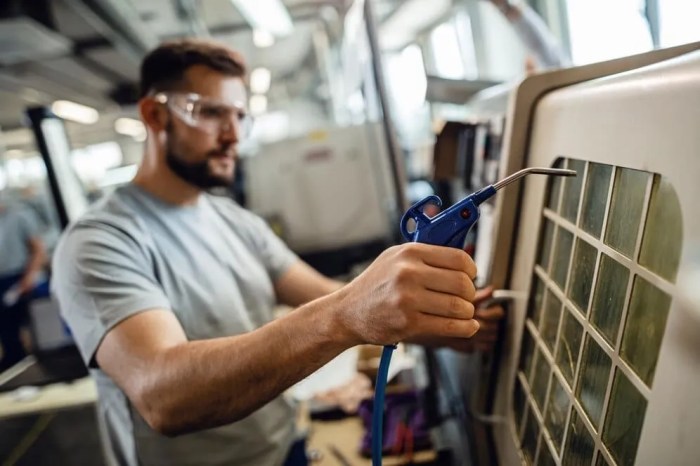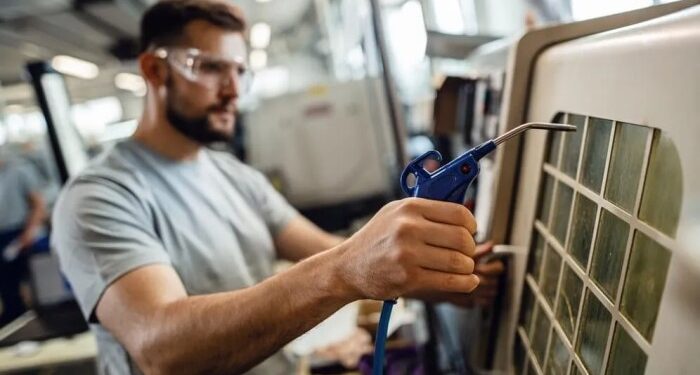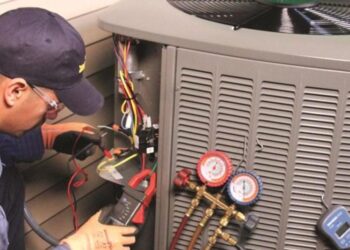Exploring the benefits of regular AC tune-ups and how they can significantly prolong the life of your unit, this article delves into the key components, frequency recommendations, and DIY maintenance tips to keep your AC running smoothly.
Importance of AC Tune-Up
Regular AC tune-ups play a crucial role in extending the lifespan of your unit by ensuring it operates efficiently and effectively. Neglecting these tune-ups can lead to premature AC failure, resulting in costly repairs or even the need for a full unit replacement.
Cost Comparison
When comparing the cost of regular AC tune-ups to major repairs or replacements, the difference is significant. A tune-up may cost a fraction of the price compared to a major repair or a new AC unit. By investing in regular maintenance, you not only extend the lifespan of your AC unit but also save money in the long run by avoiding expensive repairs or replacements.
Components of an AC Tune-Up
Regular AC tune-ups involve checking and servicing key components to ensure optimal performance and longevity of the unit.
Cleaning or Replacing Air Filters
During an AC tune-up, one of the most crucial tasks is cleaning or replacing the air filters. Clogged or dirty filters can restrict airflow, making the system work harder to cool the air. This not only reduces efficiency but also leads to increased wear and tear on the unit.
By cleaning or replacing the air filters regularly, you can improve air quality, enhance efficiency, and prolong the lifespan of your AC system.
Inspecting and Cleaning Condenser Coils
Another essential component of an AC tune-up is inspecting and cleaning the condenser coils. Over time, these coils can accumulate dirt, debris, and grime, hindering the heat transfer process. When the condenser coils are dirty, the system has to work harder to cool the air, causing energy wastage and potential breakdowns.
By keeping the condenser coils clean, you can maintain optimal efficiency, reduce energy consumption, and extend the lifespan of your AC unit.
Frequency of AC Tune-Ups
Regular AC tune-ups are essential to ensure the optimal performance and longevity of your unit. The frequency at which you should schedule tune-ups can greatly impact the efficiency and lifespan of your air conditioning system.
Recommended Tune-Up Schedule
It is generally recommended to schedule an annual AC tune-up to keep your unit in top condition. However, in some cases, bi-annual tune-ups may be more suitable depending on certain factors.
- Annual Tune-Ups: Conducting a tune-up once a year is ideal for most air conditioning systems. This routine maintenance helps prevent major issues, improves energy efficiency, and extends the lifespan of your unit.
- Bi-Annual Tune-Ups: In regions with extreme weather conditions or if your AC unit is used year-round, scheduling tune-ups twice a year may be more beneficial. This allows for more frequent inspections and adjustments to ensure optimal performance.
Factors Influencing Tune-Up Frequency
The frequency of AC tune-ups can be influenced by various factors such as:
- Usage Patterns: If your AC unit operates constantly or is used for extended periods, more frequent tune-ups may be necessary to maintain efficiency.
- Environmental Conditions: Dusty or humid environments can put more strain on your AC system, requiring more frequent tune-ups to prevent damage and maintain performance.
DIY Maintenance Tips

Regular maintenance is key to keeping your AC unit running smoothly and efficiently. In addition to professional tune-ups, there are simple tasks that homeowners can perform to help prolong the lifespan of their unit and prevent costly repairs. DIY maintenance can include cleaning air filters, condenser coils, and conducting visual inspections.
Cleaning Air Filters
One of the most important DIY maintenance tasks is cleaning or replacing air filters. Clogged filters can restrict airflow, causing your AC unit to work harder and potentially leading to system malfunctions. Here's a step-by-step guide on how to clean air filters at home:
- Locate the air filter panel on your AC unit.
- Remove the filter carefully to avoid spreading dust and debris.
- Vacuum the filter or rinse it with water, depending on the type of filter.
- Allow the filter to dry completely before reinserting it into the unit.
- Check the manufacturer's recommendations for how often to clean or replace the filter.
Cleaning Condenser Coils
Another important DIY maintenance task is cleaning the condenser coils. Dirty coils can reduce the efficiency of your AC unit and lead to higher energy bills. Here's a step-by-step guide on how to clean condenser coils at home:
- Turn off the power to the AC unit.
- Remove any debris, leaves, or dirt from the exterior of the unit.
- Gently clean the coils with a soft brush or a vacuum cleaner to remove dust and dirt.
- Use a coil cleaner spray to thoroughly clean the coils and rinse with water.
- Allow the coils to dry completely before restoring power to the unit.
Visual Inspections and Early Issue Detection
Regular visual inspections can help homeowners detect early signs of potential issues with their AC unit. By catching problems early, you can prevent costly repairs and extend the lifespan of your system. Here are some key things to look out for during visual inspections:
- Check for any leaks or moisture around the unit.
- Listen for unusual noises coming from the system.
- Inspect the air ducts for any signs of damage or blockages.
- Monitor the thermostat to ensure it's functioning correctly.
Concluding Remarks
In conclusion, investing in routine AC tune-ups not only ensures optimal performance but also saves you from costly repairs down the line. By following the suggested maintenance practices, you can enjoy a longer lifespan for your AC unit and improved energy efficiency.
Query Resolution
How often should AC tune-ups be scheduled?
It is recommended to schedule AC tune-ups annually to maintain optimal performance.
What are some DIY maintenance tasks for AC units?
Homeowners can clean air filters, inspect condenser coils, and perform regular visual checks to supplement professional tune-ups.
Are bi-annual tune-ups more beneficial than annual tune-ups?
Bi-annual tune-ups may be more suitable for units under heavy usage or in extreme environmental conditions, while annual tune-ups are generally sufficient for most cases.


![How To Avoid Contractor Scams [Infographic]](https://ac.radartasik.id/wp-content/uploads/2025/10/how-to-avoid-contractor-scams-feat-75x75.png)







![How To Avoid Contractor Scams [Infographic]](https://ac.radartasik.id/wp-content/uploads/2025/10/how-to-avoid-contractor-scams-feat-120x86.png)

